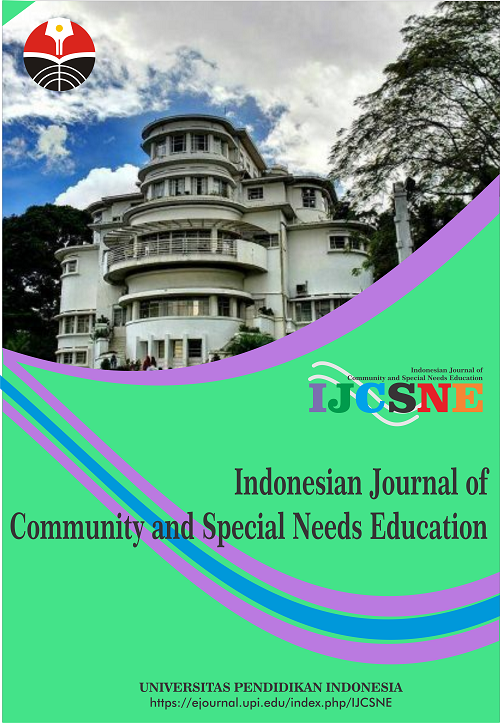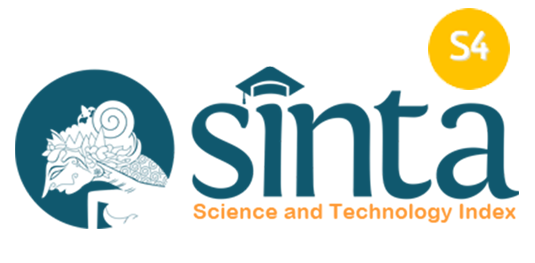Inclusive Education for Children with Disabilities: Overcoming Barriers and Unlocking Opportunities
Abstract
Inclusive education aims to provide equal learning opportunities for children with disabilities by integrating them into mainstream educational settings. This study explores the benefits, challenges, and outcomes of inclusive education, focusing on its impact on academic performance, social integration, and personal development. Drawing on empirical data and case studies, the research reveals that inclusive education enhances self-esteem, fosters empathy, and improves interpersonal skills in both students with disabilities and their non-disabled peers. However, challenges such as insufficient teacher training, limited resources, and negative societal attitudes remain obstacles to successful implementation. The study highlights the importance of teacher preparedness, the integration of assistive technologies, and policy support to overcome these barriers. By addressing these issues, inclusive education can be more effective in creating an equitable and supportive environment for all learners, regardless of their abilities.
Keywords
Full Text:
PDFReferences
Adesokan, A., and Bojuwoye, O. (2023). Teachers’ perceived barriers to inclusive education. ASEAN Journal of Community and Special Needs Education, 2(2), 91-96.
Al Shaban Radi, H.M., and Hanafi, Z. (2024). Managing visually impaired students: Factors that support and inhibit inclusive programs in elementary. Indonesian Journal of Community and Special Needs Education, 4(1), 19-28.
Allan, J., and McGregor, D. (2019). Inclusive education: An overview of current practices and challenges. Journal of Educational Research, 45(2), 112-124.
Aziza, M. (2025). Application of foreign experience in the implementation of inclusive education in Uzbekistan. American Journal of Social Science, 3(2), 1-7.
Azizah, N., Prasetyo, A.C., Dini, N., Wulandari, V., and Kruesa, M. (2022). Social inclusive education project (SIEP) as a community for handling children with special needs in rural areas. Indonesian Journal of Community and Special Needs Education, 2(2), 89-98.
De Beco, G. (2014). The right to inclusive education according to Article 24 of the UN Convention on the rights of persons with disabilities: Background, requirements and (remaining) questions. Netherlands Quarterly of Human Rights, 32(3), 263-287.
Donath, J. L., Lüke, T., Graf, E., Tran, U. S., and Götz, T. (2023). Does professional development effectively support the implementation of inclusive education? A meta-analysis. Educational Psychology Review, 35(1), 30.
Egbedeyi, T.F., and Babalola, A.E. (2023). Availability and challenges of inclusive lower primary education schools. Indonesian Journal of Community and Special Needs Education, 3(2), 93-102.
Faddillah, R.N., Nandiyanto, A.B.D., and Bilad, M.R. (2022) Literacy program for elementary school students about inclusive education in recognizing children with special needs. ASEAN Journal of Community and Special Needs Education, 1(1), 1-8.
Farrington, D. P., and Ttofi, M. M. (2009). School‐based programs to reduce bullying and victimization. Campbell systematic reviews, 5(1), 1-148.
Glushchenko, V.V. (2025). Designing an inclusive employer-disability interaction mechanism in post-industrial conditions. ASEAN Journal of Community and Special Needs Education, 4(1), 11-16.
Glushchenko, V.V. (2025). Formation of the methodology of the project-activity game in inclusive higher education. Indonesian Journal of Multidiciplinary Research, 5(1), 53-58.
Glushchenko, V.V., and Trubacheyev, E.V. (2025). Managing the social development of students with disabilities in inclusive universities: A conceptual approach. Indonesian Journal of Community and Special Needs Education, 5(1), 1-6.
Gray, K. M., Piccinin, A., Keating, C. M., Taffe, J., Parmenter, T. R., Hofer, S., and Tonge, B. J. (2014). Outcomes in young adulthood: Are we achieving community participation and inclusion?. Journal of Intellectual Disability Research, 58(8), 734-745.
Guthrie, L., and Henderson, M. (2020). Teachers’ perceptions of inclusive education: Barriers and solutions. International Journal of Special Education, 35(1), 45-58.
Hendrayanto, A.R., Muktiarni, M., and Mupita, J. (2022). Perception of junior high school students in using ipusnas app as medium for increase literacy social studies subject. Indonesian Journal of Educational Research and Technology, 2(3), 149-154.
Hersh, M., and Mouroutsou, S. (2019). Learning technology and disability—Overcoming barriers to inclusion: Evidence from a multicountry study. British Journal of Educational Technology, 50(6), 3329-3344.
Markey, K., O’Brien, B., Kouta, C., Okantey, C., and O’Donnell, C. (2021). Embracing classroom cultural diversity: Innovations for nurturing inclusive intercultural learning and culturally responsive teaching. Teaching and Learning in Nursing, 16(3), 258-262.
Mirzabek, R. (2023). The science education and history of ulugh beg: Astronomer and mathematician from Samarkand, Uzbekistan. ASEAN Journal of Science and Engineering Education, 3(1), 59-64.
Muhabbat, H., Jakhongir, S., Farxod, T., and Khulkar, K. (2023). Modernization of management system of higher education institutions: An empirical perspective from Uzbekistan. Indonesian Journal of Multidiciplinary Research, 3(2), 297-306.
Mukhopadhyay, S., Nenty, H. J., and Abosi, O. (2012). Inclusive education for learners with disabilities in Botswana primary schools. Sage Open, 2(2), 2158244012451584.
Musayaroh, S., Asmiati, N., Utami, Y.T., Mulia, D., Sidik, S.A., Abadi, R.F., Pratama, T.Y., Maslahah, S., and Pramudyo, A.S. (2023). A digital accessibility and inclusive design-based e-module in higher education: Does it work in a classroom with a deaf student?. ASEAN Journal of Community and Special Needs Education, 2(1), 55-60.
Nam, G. (2019). Uzbekistan: Case for Inclusion. Disability, CBR and Inclusive Development, 30(1), 94-111.
Rangvid, B. S. (2018). Student engagement in inclusive classrooms. Education Economics, 26(3), 266-284.
Rizqita, A.J., Sunardi, S., and Bela, M.R.W.A.T. (2024). Development of traluli program of family-resourced early intervention for multiple disability and visual impairment (MDVI) children with fine motor impairment in inclusive school. Indonesian Journal of Community and Special Needs Education, 4(1), 65-74.
Zweers, I., de Schoot, R. A. V., Tick, N. T., Depaoli, S., Clifton, J. P., de Castro, B. O., and Bijstra, J. O. (2021). Social–emotional development of students with social–emotional and behavioral difficulties in inclusive regular and exclusive special education. International Journal of Behavioral Development, 45(1), 59-68.
DOI: https://doi.org/10.17509/ijcsne.v6i1.82871
Refbacks
- There are currently no refbacks.
Copyright (c) 2025 Universitas Pendidikan Indonesia

This work is licensed under a Creative Commons Attribution-ShareAlike 4.0 International License.















